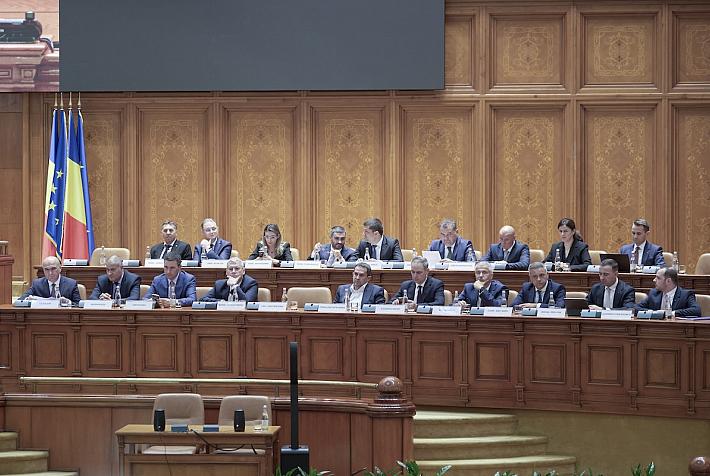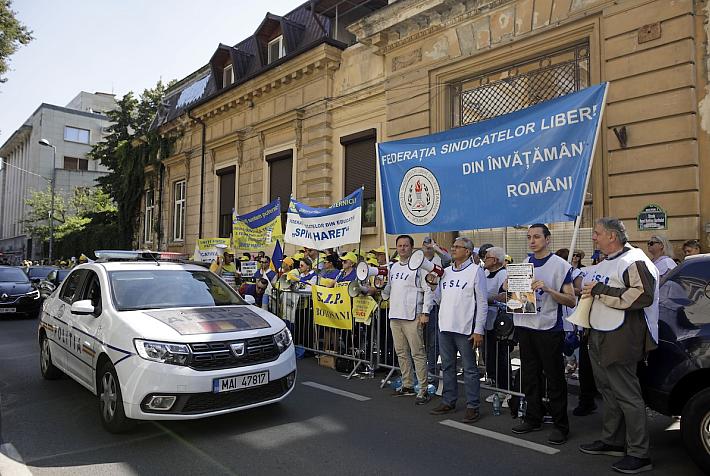Comment: UK press bashes Romania again. 'If times are tough, forget EU rights!'

The UK's right wing anti-EU press is having a go at Romania and Romanians again. This time it's The Sun's recent column, signed by Trevor Kavanagh, who's taken an upcoming by-election as an excuse to bash immigrants in general, with a special mention for Romania and Bulgaria.
“Before anyone shouts “racist”, look at some facts,” writes Mr Kavanagh. I'm always a little wary of phrases like “I'm not a racist, but...” – they tend to precede some vile snippet of racial stereotyping, or are at the very least indicative of those rather sorry world views that constantly attempt to generalize, stereotype or pigeon-hole human-beings on racial or ethnic grounds.
The author doesn't disappoint: after claiming that Romania and Bulgaria “are virtually mafia states” he goes on to say, “Organised crime — drugs, extortion, prostitution, you name it — is rampant. Gangland executions are daily events.” Not only is this unfair, not only is this defamation of two entire countries, it is also untrue. Where is the evidence for Romania's daily gangland executions? The author quotes Europol warnings on corruption in the run up to EU accession. Fair point, Romania has and still faces serious problems with corruption. What he does not mention is the amount of hard work Romania has put into tackling the problem and the influence the EU's carrot of accession and stick of Cooperation and Verification Mechanism reports have had on improving the situation.
Interestingly a recent report from the same source – Europol – found that drug trafficking in the EU is to a large extent controlled by Northern European organized crime. Clearly there is crime in Romania, and yes, organized crime too, but to separate it from European criminal networks is misleading. Mr Kavanagh may wish to divide Europe and its peoples up with national stereotypes, but criminals have a far more democratic approach when it comes to their markets.
In my opinion, which is shared by may other expats living in Bucharest, the Romanian capital feels safe compared to many European cities, it simply isn't a threatening place. Rome is far worse for pickpockets and the sort of drunken violent loutish behavior that is a perennial feature of British towns is not a common sight in Romanian cities. As for Trevor Kavanagh's suggestion that many Romanians are lazy scrounging skivers, my own experience is quite the opposite. I've lost count of the number of times I've met Romanians who study and work more than one job at the same time.
The Sun's article also takes a swing at Roma people. There is serious prejudice in Romania against the Roma population and one of its many manifestations is a fear among Romanians that foreigners lump ethnic Roma and the country's general population together. This is exactly what the Sun article does. In my opinion, the Roma peoples of Europe raise a question beyond immigration. Time and time again human rights groups, such as Amnesty International, find widespread prejudice against Roma across Europe. Figures for access to education and even basic rights and amenities, such as running water and normal citizenship, are shocking. The EU has identified the issue as a problem, but has failed to tackle it so far. A quick glance at the Amnesty International and the European Roma Rights Centre websites shows that Roma populations in Romania and across the EU face serious breaches in human rights.
So sadly again Romania is vilified in the UK press. Most people would agree that migration is a serious issue that any responsible government must manage and across Europe times are undeniably hard. But it is wrong to let tough economic times and high unemployment excuse the scapegoating of nations and peoples.
As well as the rabid 'get the UK out of the EU now' opinion, there also seems to be a view in Britain that the EU should be solely about freedom for business. It suggests a type of economic imperialism under which businesses are free to earn a quick buck anywhere and countries can draw on cheap labor when necessary, but without the inconvenience of extending equal rights, especially to the poorer EU countries. It's reminiscent of the North American Free Trade Agreement, in particular in relation to the US and Mexico, where essentially business is free, but people are not.
I am essentially pro-Europe, but I do not think that everything the EU does is good. I would always argue for change through participation rather than viewing the EU as wholly bad and obsessing about leaving. To mangle a JFK quote horribly, perhaps the British could ask not what the EU can do for them, but what together they can do for the freedom and opportunity of all Europeans. It would certainly be an alternative to the message that comes across in parts of the British media at the moment, which is truly mean-spirited and appears to be: “Romanians welcome for low paid jobs when there are labor shortages, but if times are tough and they want the same rights as all EU citizens, forget it.”
Liam Lever, liam@romania-insider.com












